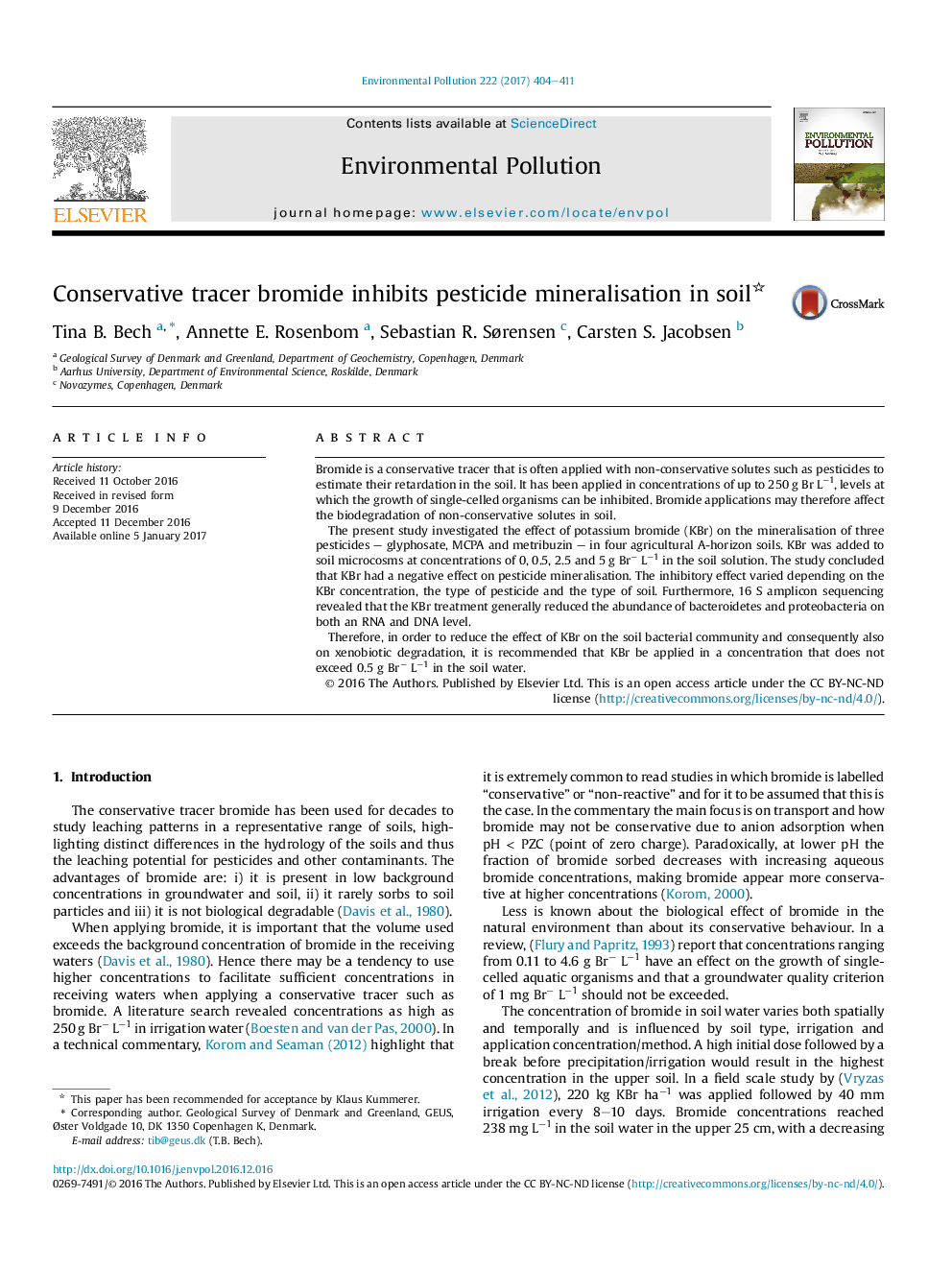| کد مقاله | کد نشریه | سال انتشار | مقاله انگلیسی | نسخه تمام متن |
|---|---|---|---|---|
| 5749035 | 1619151 | 2017 | 8 صفحه PDF | دانلود رایگان |

- Conservative tracer KBr inhibits pesticide degradation.
- The inhibitory effect depends on KBr concentration, type of pesticide and soil type.
- KBr treatments generally reduced soil bacterial presence and activity.
Bromide is a conservative tracer that is often applied with non-conservative solutes such as pesticides to estimate their retardation in the soil. It has been applied in concentrations of up to 250Â g Br Lâ1, levels at which the growth of single-celled organisms can be inhibited. Bromide applications may therefore affect the biodegradation of non-conservative solutes in soil.The present study investigated the effect of potassium bromide (KBr) on the mineralisation of three pesticides - glyphosate, MCPA and metribuzin - in four agricultural A-horizon soils. KBr was added to soil microcosms at concentrations of 0, 0.5, 2.5 and 5Â g Brâ Lâ1 in the soil solution. The study concluded that KBr had a negative effect on pesticide mineralisation. The inhibitory effect varied depending on the KBr concentration, the type of pesticide and the type of soil. Furthermore, 16Â S amplicon sequencing revealed that the KBr treatment generally reduced the abundance of bacteroidetes and proteobacteria on both an RNA and DNA level.Therefore, in order to reduce the effect of KBr on the soil bacterial community and consequently also on xenobiotic degradation, it is recommended that KBr be applied in a concentration that does not exceed 0.5Â g Brâ Lâ1 in the soil water.
214
Journal: Environmental Pollution - Volume 222, March 2017, Pages 404-411